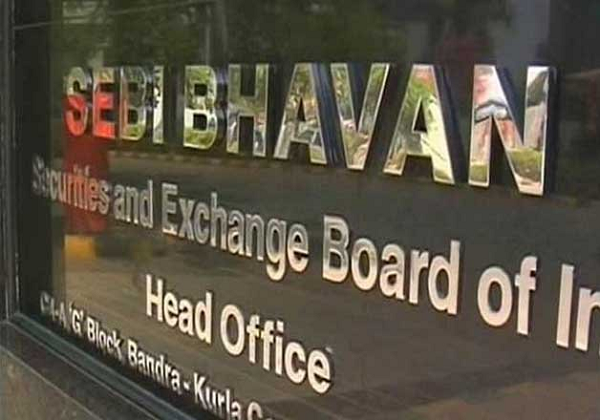
by Editor | May 25, 2021 | Business, Corporate, Corporate Buzz, Large Enterprise
 Mumbai : Reliance General Insurance Company Ltd on Thursday said securities market regulator Securities and Exchange Board of India (SEBI) has issued its final observation letter to the draft red herring prospectus (DRHP) filed by it.
Mumbai : Reliance General Insurance Company Ltd on Thursday said securities market regulator Securities and Exchange Board of India (SEBI) has issued its final observation letter to the draft red herring prospectus (DRHP) filed by it.
The DRHP was dated October 9, 2017.
In a statement issued here, Reliance General Insurance said the initial public offer (IPO) size aggregates to 25 per cent of the post issue paid up capital of the company and comprises of a fresh issue of upto 1,67,69,995 equity shares by the company and an offer for sale by Reliance Capital Limited of upto 5,03,09,984 equity shares.
The face value of the equity shares is Rs 10 per share.
The net proceeds from the fresh issue will be utilised for augmenting the solvency margin and consequently increase the solvency ratio, to meet future capital requirements which are expected to arise out of growth.
Reliance General Insurance is a wholly owned subsidiary of Reliance Capital Limited.
For this proposed IPO, Reliance General Insurance has appointed Motilal Oswal Investment Advisors Limited, Credit Suisse Securities (India) Private Limited, Edelweiss Financial Services Limited and UBS Securities India Private Limited as the global coordinators and book running lead managers to the issue.
Haitong Securities India Private Limited and IDBI Capital Markets and Securities Limited are the book running lead managers and Karvy Computershare Private Limited is the Registrar.
—IANS

by Editor | May 25, 2021 | Corporate, Corporate Governance
 Mumbai : Securities market regulator Sebi on Thursday said that a committe formed by it to look into corporate governance has recommended a minimum of six directors on the board of listed firms.
Mumbai : Securities market regulator Sebi on Thursday said that a committe formed by it to look into corporate governance has recommended a minimum of six directors on the board of listed firms.
The recommendation was made by a committee formed by Sebi on corporate governance in June 2017 under the Chairmanship of Uday Kotak, Executive Vice Chairman and Managing Director, Kotak Mahindra Bank.
The committee was constituted with a view to enhance the standards of corporate governance of listed entities in India.
The committee consisted of government officials and representatives from industry, professional bodies, stock exchanges, apart from academicians, lawyers and proxy advisors.
At present, the Companies Act, 2013 require a minimum of three directors on the board of a public limited company.
“The board of directors plays an important role in a company’s governance and performance… it is crucial that a sufficient number of directors with diverse backgrounds and skill sets are available on the boards of listed entities to fulfill these functions and obligations,” the committee’s recommendation report said.
“Therefore, the committee recommends that for any listed entity, a minimum of six directors should be required on the board of directors.”
—IANS

by Editor | May 25, 2021 | Business, Investing, Large Enterprise, Property, Venture Capital
 Mumbai : Securities and Exchange Board of India (Sebi) on Monday said it has allowed Infrastructure Investment Trusts (InvITs) and Real Estate Investment Trusts (REITs) to raise funds by issuing debt securities.
Mumbai : Securities and Exchange Board of India (Sebi) on Monday said it has allowed Infrastructure Investment Trusts (InvITs) and Real Estate Investment Trusts (REITs) to raise funds by issuing debt securities.
“In order to facilitate growth of InvITs and REITs, Sebi Board has approved allowing them to raise debt capital by issuing debt securities. It has also introduced the concept of strategic investor for REITs on similar lines of InvITs and allowed single asset REIT on similar lines of InvIT,” the markets regulator said in a statement.
It has allowed REITs to lend to underlying holding company or special purpose vehicle (SPV), the statement said.
The Sebi Board also decided to have more consultations with stakeholders on a proposal to allow REITs to invest at least 50 per cent of the equity share capital or interest in the underlying holding company or SPVs, and similarly allowing the holding company to invest at least 50 per cent of the equity share capital or interest in the underlying SPVs, it added.
—IANS

by Editor | May 25, 2021 | Corporate, Corporate Governance
 New Delhi, (IANS) Stock market regulator Sebi (Securities and Exchange Board of India) on Thursday said it will auction ten properties of the Sahara Group at a reserve price of Rs 1,192 crore.
New Delhi, (IANS) Stock market regulator Sebi (Securities and Exchange Board of India) on Thursday said it will auction ten properties of the Sahara Group at a reserve price of Rs 1,192 crore.
According to Sebi, it has engaged HDFC Realty and SBI Capital Markets to sell the ten properties of the group.
The sale will be carried out through e-auction by HDFC Realty and SBI Capital Markets on July 4 (11.00 a.m.-12.00 noon) and July 7 (10.30 a.m. -11.30 a.m.), respectively.
Sebi asked the two companies to carry out the auction after the Supreme Court’s directive to initiate the sale of Sahara properties.
In a public notice published on Thursday, HDFC Realty said it will carry out an online auction of five Sahara properties at a reserve price of Rs 721.96 crore.
The properties include agricultural, non-agricutlural lands located in Uttar Pradesh, Madhya Pradesh, Tamil Nadu, Chattishgarh and Andhra Pradesh. The bidders can inspect the land on June 10.
In a separate public notice, SBI Capital Markets said it will carry out the online auction of five land parcels at a reserve price of Rs 470.04 crore.
The land parcels are located in Gujarat and Uttar Pradesh and the bidders can inspect the same on June 8-9.

by Editor | May 25, 2021 | Investing, Opinions
 By Meghna Mittal New Delhi, (IANS) Breaking new ground in a bid to help civic bodies raise capital for financing infrastructure projects, three such entities will soon issue bonds on a pilot basis, according to a top finance ministry official.
By Meghna Mittal New Delhi, (IANS) Breaking new ground in a bid to help civic bodies raise capital for financing infrastructure projects, three such entities will soon issue bonds on a pilot basis, according to a top finance ministry official.
“The framework and guidelines on municipal bonds are already in place. And now we have three projects that are going through. This will have to be done by the Ministry of Urban Development. They are taking up three cities. If the pilot succeeds, then it gets rolled out (on a wider scale),” the finance ministry official told IANS on condition of anonymity.
Market watchdog SEBI’s regulations for municipal bonds have been in place for one-and-a-half years, but there’s been no further traction beyond that. The pilot in three cities is being seen as an effort to encourage local bodies to sell bonds to the public.
One other intention is to reduce the reliance of civic bodies on banks, which have largely become risk-averse in view of their rising non-performing assets (NPAs).
Speaking on the size of the bonds, the official said that the pilot issue will be sufficiently large as the overheads involved are high.
A conducive bond market and supportive private sector will support the pilot, he said.
Though the cities chosen for the pilot have not been disclosed, a source in the finance ministry spelt out the criteria: “The municipal bodies should have (a sufficient) budget in hand and the capacity to do this (execute large projects). It could be (through) a special purpose vehicle (SPV) kind of arrangement that is commercially viable, preferably through PPP (public private partnership) mode.”
The official said that since all municipalities may not have the do-it-all strength on their balance sheets, the guidelines offer various options in structuring.
As for the modalities, an escrow account will be created for a particular infrastructure project. Some of the municipal taxes may be earmarked for a particular project or cross subsidy may be given for taking up a project in a slum area, the official said.
“Most important, they have to decide for which project it (the money) is going to be,” he said.
A credit rating system for infrastructure projects is also being worked upon, which will be in place this year, the finance ministry official said.
“We are working on the rating project. The system will be in place this year. We are in discussion with credit rating agencies for a new system,” he said.
Credit rating agencies like Crisil and India Ratings are collectively working on a new system for infrastructure projects that will use a different methodology than for corporate ratings.
(Meghna Mittal can be reached at meghna.m@ians.in)

 Mumbai : Reliance General Insurance Company Ltd on Thursday said securities market regulator Securities and Exchange Board of India (SEBI) has issued its final observation letter to the draft red herring prospectus (DRHP) filed by it.
Mumbai : Reliance General Insurance Company Ltd on Thursday said securities market regulator Securities and Exchange Board of India (SEBI) has issued its final observation letter to the draft red herring prospectus (DRHP) filed by it.



